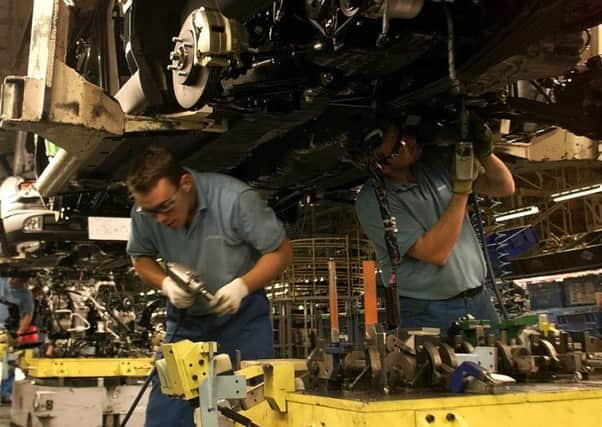Martin Flanagan: Input prices a concern for inflation
This article contains affiliate links. We may earn a small commission on items purchased through this article, but that does not affect our editorial judgement.


The first official data since the European Union referendum vote in June shows that the consumer prices index (CPI) only edged up to 0.6 per cent in July, barely changed from 0.5 per cent the previous month. The aftermath of the EU vote may have led to sterling being battered against the US dollar, in particular, and also the euro, but so far is it not hitting the value of the pound in consumers’ pockets.
By contrast, the producer prices index (PPI) yesterday showed input prices – raw materials – jumped 4.3 per cent in the year to July, compared with a fall of 0.5 per cent in the year to June.
Advertisement
Hide AdAdvertisement
Hide AdThe data is an object lesson that while a depressed currency may aid exporters by making their goods cheaper abroad, the flipside is that production costs also go up. Swings and roundabouts.
With CPI, all that can be said is that inflation is continuing a slow, incremental rise that began in late 2015. It may be at a 20-month high, but what a small base it has risen from. An increase in transport costs was behind the latest small rise allied to a smaller fall ins second-hand car prices than a year ago.
Deflation in food and non-alcoholic drinks, meanwhile, is diminishing though not gone. Prices in the sub-sector fell 0.2 per cent between June and July compared with a drop of 0.7 per cent in the same period of 2015.
The most likely outcome for the rest of 2016 is a continuing gradual rise in consumer inflation before gathering relatively more pace in 2017 and British businesses continuing to be wary on investment amid Brexit uncertainty and rising input prices.
Pawnbroker strikes gold
The Brexit vote has been good for pawnbrokers. H&T Group, which trades as H&T Pawnbrokers, has seen half-time profits leap 42 per cent as the price of gold has risen nearly 8 per cent so far this year amid the rush for haven assets in the financial market uncertainty both before and after the EU referendum.
Jitters about this year’s US election and the malaise about cash holdings in an era of low or negative interest rates have also supported the gold price, and are therefore driving business at H&T and its pawnbroking peers.
